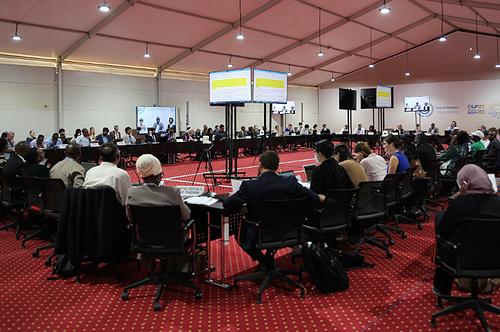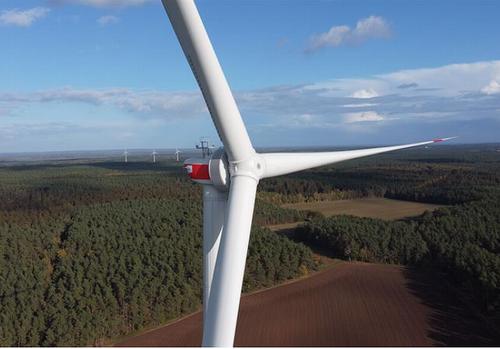Building ‘A Grand Coalition’ to Protect the Climate

By Sunny Lewis for MaxImpact
MADRID, Spain, March 27, 2023 (MaxImpact.com Sustainability News) – A unique international climate and energy summit planned for Madrid on October 2 is in the works, hosted by the Government of Spain and the International Energy Agency, IEA. The summit is being convened to form “a grand coalition” of energy and climate ministers with industry, finance and civil society leaders who agree to keep global warming to just 1.5 degrees Celsius higher than pre-industrial temperatures – the most conservative goal of the Paris Agreement.
“Now is the moment to come together in a grand coalition of all stakeholders – encompassing governments, the energy industry, investors and civil society – that are genuinely committed to reducing emissions while safeguarding energy security,” Dr. Fatih Birol, executive director of the International Energy Agency, said.
The summit in Madrid will happen just weeks before the annual United Nations Climate Change Conference. This year, being the 28th Conference of the Parties to the global climate treaty, it’s called COP28 and will take place during the Spanish Presidency of the Council of the European Union.
Dubai, the most populous city in the United Arab Emirates, and the capital of the Emirate of Dubai, will host COP28.
“We need to send a strong message ahead of COP28 that the 1.5 °C goal is still alive,” Dr. Birol said.
Many climate change impacts – droughts, floods, extreme storms, wildfires – are already being felt at the current 1.2 °Celsius (2.2 °Fahrenheit) level of warming, according to the 2021 technical summary from the UN’s Intergovernmental Panel on Climate Change, IPCC.
Additional warming will increase these impacts and can trigger tipping points, such as the melting of the Greenland ice sheet, the IPCC warned.
Practical Planning Can Incentivize Climate Action
Even in the face of these dire warnings, it has been difficult to get some leaders excited about spending money on climate action, but will yet another meeting make a difference?
A consultant, who has run hundreds of meetings for construction project managers and U.S. military service members, told ENS that planning meetings during which each participant is invited to contribute to the group are the most effective.

John Davis, the consultant, who requested a pseudonym, stressed the positive motivations that can arise when smaller obstacles are resolved ahead of a big meeting, such as COP28, so that the whole project can move forward.
And he underlined the importance of incentives. Climate action incentives have been mostly negative, such as the death tolls and accounts of destruction caused by climate extremes. But finding positive incentives, making arrangements so that all stakeholders are happy at the end of a summit, that is a lofty goal, and one worth pursuing.
The success of meetings will determine the fate of the first Global Stocktake that is part of the COP28 process this year. The Global Stocktake enables countries to assess progress towards the goals of the Paris Agreement. It is a moment for countries to agree on concrete milestones on a roadmap to the accomplishment of the 2030 targets.
This roadmap must include detailed steps for all sectors and themes, including climate adaptation, loss and damage, finance, technology and capacity building, and that means more meetings.
Just the technical dialogue of the Stocktake will require many meetings to realize its goal – a shared understanding of the best available scientific information on implementation of the Paris Agreement and progress towards its purpose and long-term goals.
Two plenary sessions will be held, one at the start of the meeting will ensure a shared understanding on the scope and share content of the discussions by all participants; and another one at the end of the meeting, in which reports from the roundtables will be presented.
Three roundtables, structured around the three thematic areas of the Global Stocktake, will allow for interactions in smaller settings, while enabling virtual observation. They will be an opportunity for focused discussions on collective progress under each thematic area of the Global Stocktake, opportunities and challenges for enhancing action, and support in the context of the technical dialogue’s guiding questions. Three roundtable discussions will be organized for each roundtable.
Finally, a World café format of rapid, focused presentations, will facilitate interactive exchange across thematic areas, starting a dialogue on connections and holistic understanding.
The Summit Seizes a Critical Moment
Spain’s Third Vice President Teresa Ribera and the IEA’s Dr. Birol will work jointly to make their concept of a “grand coalition” a reality.
“It is time to bring together the political will and leadership capable of accelerating climate action and to redouble our efforts to meet the goal of containing the global temperature rise to below 1.5 °C,” said Vice-President Ribera, who also serves as minister for ecological transition.
“It is time to analyse the levers and conditions for a safer and healthier fossil fuel free world. The urgent deployment of renewables and new energy carriers such as renewable hydrogen are crucial in this exercise,” Ribera declared.
Under the 2015 Paris Agreement, nations unanimously agreed to keep warming “well under 2 °C.” But with pledges made under the Paris Agreement to date, global warming would still reach about 2.7 °C (4.9 °F) by the end of the century, according to the United Nations Environment Programme, UNEP.
Limiting warming to 1.5 °C will require halving greenhouse gas emissions by 2030 and achieving net-zero emissions by 2050, the IPCC scientists said in a 2018 report. “In model pathways with no or limited overshoot of 1.5 °C, global net anthropogenic CO2 emissions decline by about 45% from 2010 levels by 2030, reaching net zero around 2050,” the IPCC stated.
To keep global warming below 1.5 °C, according to the IEA, the world’s emissions need to peak before 2025 – just two years away – and then fall rapidly until they hit net zero by 2050 or earlier.
“It is time to work together to create enabling ecosystems to decarbonise our economies and societies. It is time for the world’s energy and climate leaders to take a joint stand,” Dr. Birol said.
As the largest source of the greenhouse gas emissions that cause global warming, Birol and Ribera are calling on the energy sector to take a greater leadership role with strong policies and tangible actions to drive the transition to clean energy that the world needs.
Energy security concerns caused by Russia’s invasion of Ukraine have motivated countries to turn to renewables to reduce reliance on imported fossil fuels, whose prices have spiked.
“This is a clear example of how the current energy crisis can be a historic turning point towards a cleaner and more secure energy system,” Dr. Birol said. “Renewables’ continued acceleration is critical to help keep the door open to limiting global warming to 1.5 °C.”
“The global energy crisis has triggered unprecedented momentum behind renewables, with the world set to add as much renewable power in the next 5 years as it did in the past 20,” the IEA said in a December 2022 report.
Global renewable power capacity is now expected to grow by 2,400 gigawatts over the 2022-2027 period, an amount equal to the entire power capacity of China today, according to “Renewables 2022,” the latest edition of the IEA’s annual report on the sector.
This massive expected increase is 30 percent higher than the amount of growth that was forecast just a year ago, highlighting how quickly governments have thrown additional policy weight behind renewables.
The IEA predicts that renewables will account for over 90 percent of global electricity expansion over the next five years, overtaking coal to become the largest source of global electricity by early 2025.
Some energy companies are investing now in solar, wind, hydroelectric, geothermal, and biomass sources of power. The largest renewable energy companies are based in Spain and Denmark, but other big corporations are based in China, the United States, and Canada.
This summit provides global decision-makers with an opportunity to send a strong signal to the world on our common future, to reiterate that the 1.5 °C goal is alive and achievable, and to take a firm line and strong message to the Global Stocktake process culminating at COP28 in November.
Regional Climate Weeks Also Building Momentum
Four Regional Climate Weeks will be held this year, instead of the usual three, to build momentum ahead of COP28 and the conclusion of the first global stocktake.

Designed to chart the way for fulfilling the Paris Agreement’s key goals, the global stocktake is a moment to take a close look at the state of our planet and to chart a better course for the future,”
“We need regional stakeholders to identify what works for them, and to present plans and strategies at COP28 in Dubai which are regionally applicable. This will be a key role of the Regional Climate Weeks this year,” Executive Secretary of UN Climate Change Simon Stiell said.
Regional Climate Weeks bring together a diverse range of climate change stakeholders “under one umbrealla.” Participants include representatives of governments, the private sector, development organizations, youth groups and civil society. The events provide opportunities to have solution-oriented dialogues, to build new partnerships and collaborate on climate action projects.
Three Regional Climate Weeks are confirmed, one is still in the planning stages:
Africa Climate Week (ACW 2023), Nairobi, September 4-8. Hosted by the government of Kenya, this event will be organized in parallel with the African Climate Action Summit planned for September 4-6, also hosted by Kenya.
Middle East and North Africa Climate Week (MENACW 2023), Riyadh, October 9-12, and hosted by the government of Saudi Arabia.
Latin America and Caribbean Climate Week (LACCW 2023), Panama City, October 23-27, hosted by the government of Panama.
Asia-Pacific Climate Week (APCW 2023) will also take place in the second half of 2023, with the venue and dates to be announced shortly.
The Regional Climate Weeks include a series of events that enable a grassroots exchange of knowledge and best practices across the region.
Organizations wishing to propose to organize an event at one or several climate weeks will have the opportunity to do so when the UN Climate Change secretariat launches the call for expressions of interest in April.
Registration for participants to the regional climate weeks will be opened closer to the climate weeks, when further information about the program and logistics will be made available at the Regional Climate Weeks website.
On logistical and organizational issues, please contactclimate-week@unfccc.int. For media inquiries, please contact press@unfccc.int.